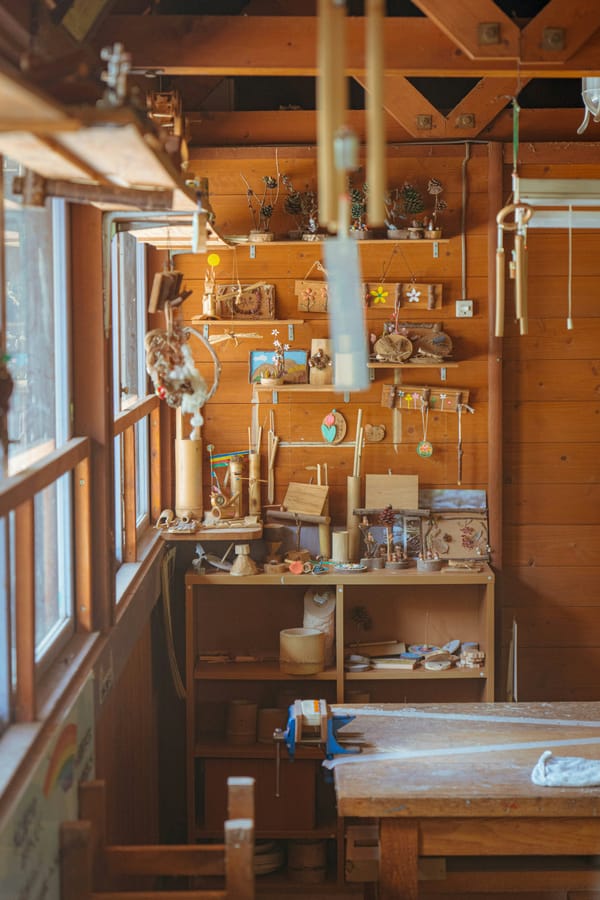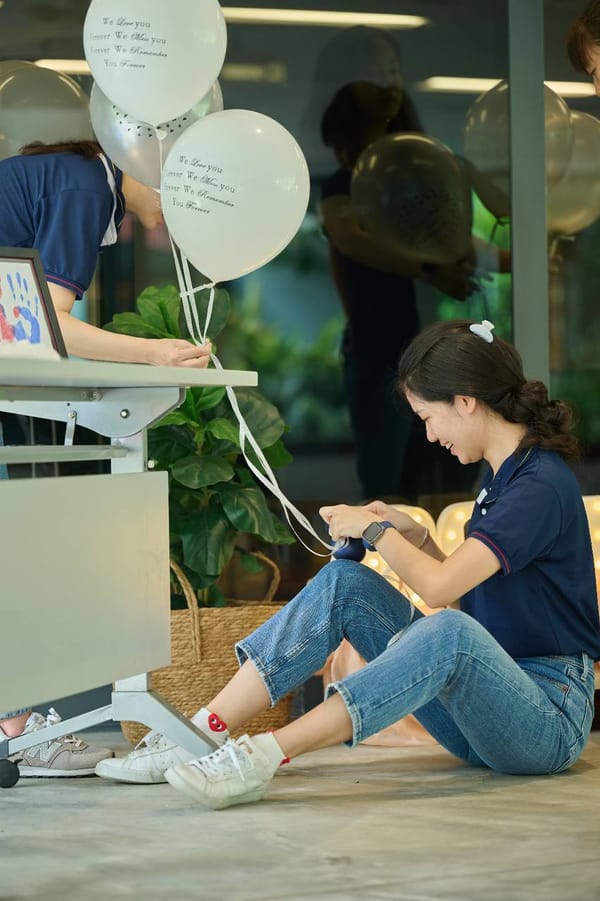Helping Hands for Dyslexia: Meet Denise
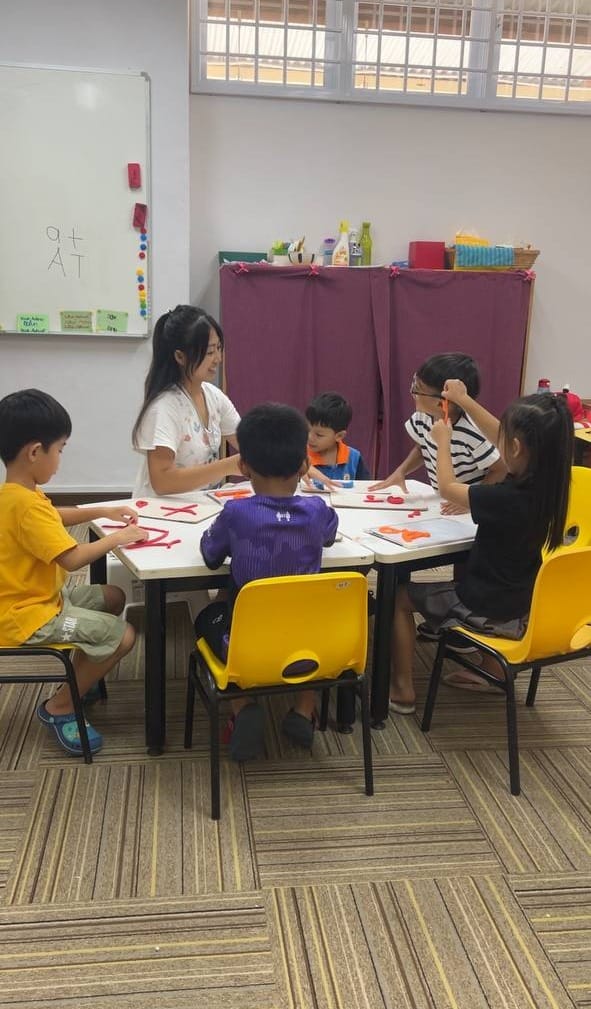
Our alumni network stretches far and wide! We've heard from classroom teachers, a researcher, and a Child Life specialist. In this article, we zoom into the experiences of one of alumni working specifically with children with dyslexia at the Dyslexia Association Singapore (DAS).
Dyslexia is a specific learning difference that affects a person’s ability to read, write, and spell. It stems from the brain’s way of processing language, which can make reading and spelling challenging despite normal intelligence. Educators who work with individuals with dyslexia provide them with strategies in overcoming challenges with literacy, ensuring that they can thrive in their learning and demonstrate their strengths.
For pre-schoolers, the process can be a little trickier. "Children below the age of 6 cannot be diagnosed yet, and my kids are usually from N2 onwards," Denise explained. "That's [usually] when parents feel like, 'Oh, actually at their level, they are supposed to hit certain language and literacy milestones, but they are not doing."
"My clientele is very focused on children's needs, specifically language abilities. They are either ESL learners, or at risk of dyslexia," she continued.
Providing Specialised Literacy Support
"I've always had an interest in helping children who face difficulties in reading or using the literacy, understanding letters, reading fluency... That's an area of interest that I've always wanted to explore, ever since I stepped foot into EC," Denise shared. She worked at MOE Kindergarten from 2016 to 2019, thereafter enrolling in SUSS. Throughout her undergraduate journey, she provided private tutoring to children, focusing on language and literacy goals.
"After my first batch of kids graduated [in 2018], I found out from their parents that they were facing difficulty in reading... That actually plunged down their confidence level... I think it was at that point I started to find out, how can I better help these children when they are Kindergarten level," Denise explained.
"I really started reading up on [the] different strategies that I can use to help children meet language needs... I tried a lot, a lot, a lot of strategies, and I still find that... I'm still finding them," she laughed. "When I joined in 2023, when I really, really learnt the strategies that they use [and] applied them to my own private [tutoring] kids–their reading, like, skyrocketed."
For Denise, joining DSA was "always a dream". "I don't know where else I can find help to really hone my skills," she noted.
"In DAS, they do a lot of research on children with dyslexia, and how to help them. So, I was very certain that the strategies they use definitely could help these children."
The DAS is split into different teams, like the primary school and the preschool team, which Denise is a part of. the interesting thing about the DAS is that children are not grouped by age, but rather by abilities and needs. "I still deal with children five to six, K1 and K2. It's very structured strategies; we use the Orton-Gillingham method," Denise said.
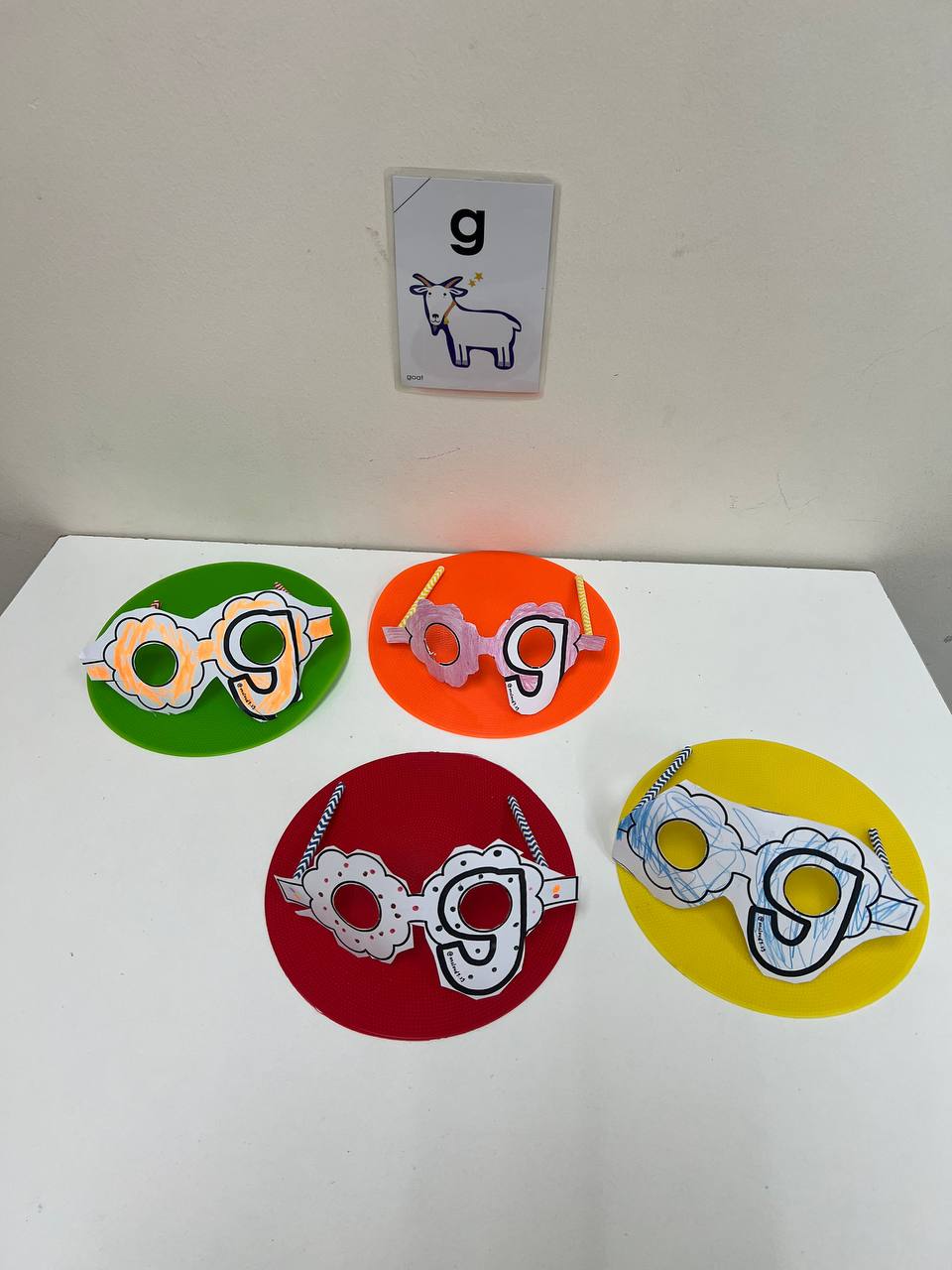
"One thing I like is that I can plan my own lesson. I can set individualised goals and choices. It's fun! I feel that what I've learnt in SUSS helped to substantiate what I'm learning over [at DAS], and helped me to better understand what they are trying to deliver," Denise reflected.
"Like some of the strategies taught in SUSS helps me to manage the classroom... Some of the learning materials–I still have them. They're very helpful and I use them to create the learning resources I can when I'm working one-on-one."
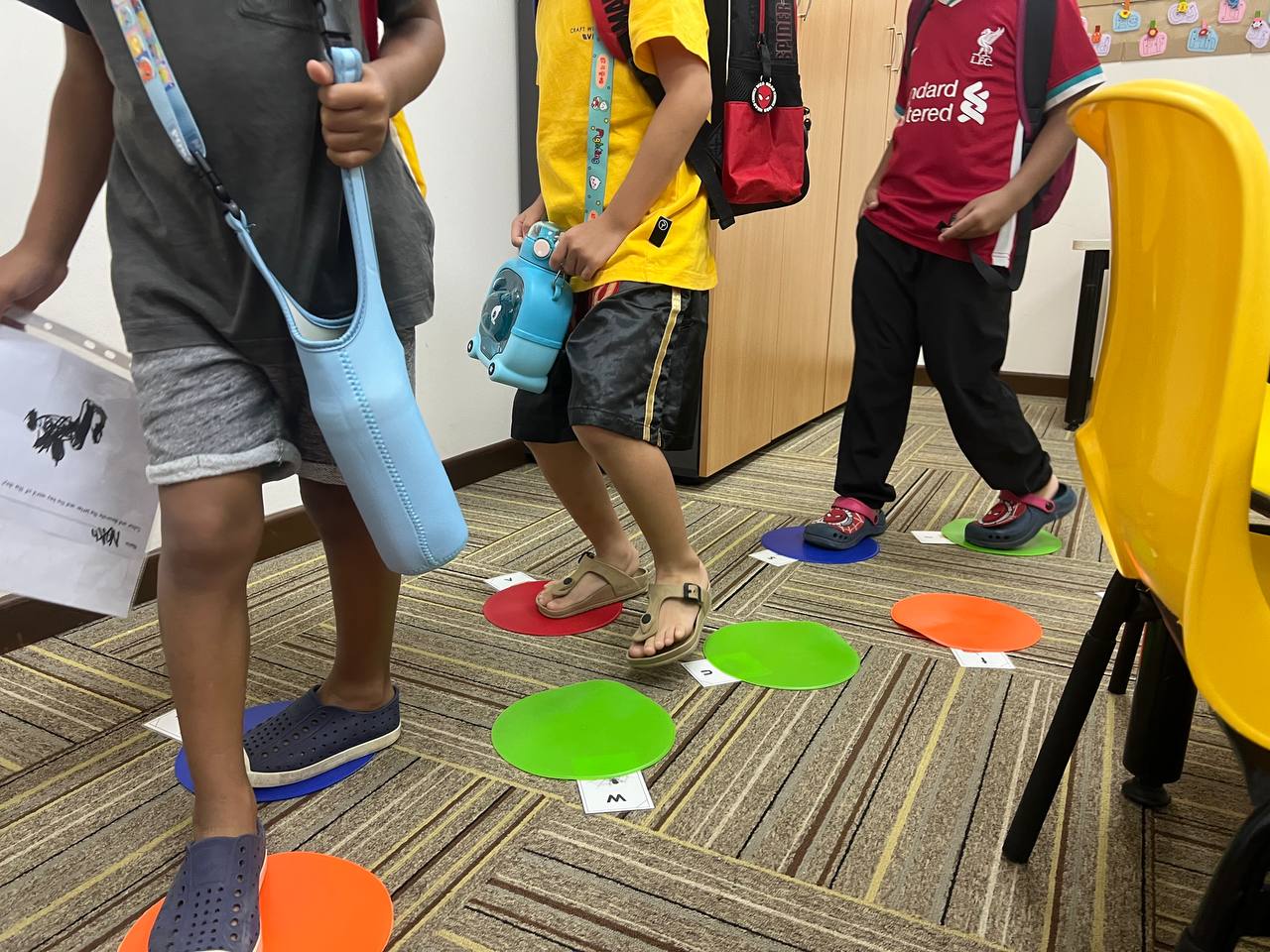
Working with Additional Needs
As classroom educators, we have had experiences with children in our classrooms with additional needs. For Denise, her experiences, while similar, look very different, too.
"The children not just have language difficulties; they come with, like, other diagnoses: kids with ADHD, autism... It's a lot of learning how to manage these children, and how I can build a bond with them," she noted.
"My class is very small, maximum (of) five. But it's challenging enough, because we do have segments that require me to go one-on-one with them," she discloses. "When I do one-on-one, the other four kids... If their behaviour us a little bit tougher to manage... Learning them alone is actually very challenging."
"I remember one of our lecturers taught us about mistaken behaviour. That is something... very close to my heart," Denise opened up about her experiences. "When I see my kids, it's really.... I always tell myself: it's not misbehaviour, it's a mistaken behaviour. And most of my kids, they lack love... a bond with the teachers. I'm always constantly trying to think how I can help this group of children."
She shared a story about one of her students whose behaviour issues arise as a result of a 'mutual dislike' between . "When I see him on Sunday, I tell the boy, 'I'm so glad you are here today. I missed you so much.' You can really see the change in his behaviour. Some of them just lack that kind of bond."
"Every lesson, my reward is kind of different. [For the] first lesson, I feel the most rewarding is when, after I sent back to their parents, they say, 'I want to come back next week'. Subsequently, [it's when] they retain the skills that I taught them. And thirdly, when I build a bond with the parents," Denise expressed. "I put in a lot of effort to talk to the parents, or update the parents... I do see my kids improving. And I think that's [because of] what the parents are also trying, applying some of the strategies that I've used in class with their own kids."
"It's very rewarding when the parents are on the same page as you and are doing their best at home to follow what you say. In working at DAS, it's easier for parents to work with us, because they already recognise that the children has these needs. That's why they are willing to partner together to help the child."
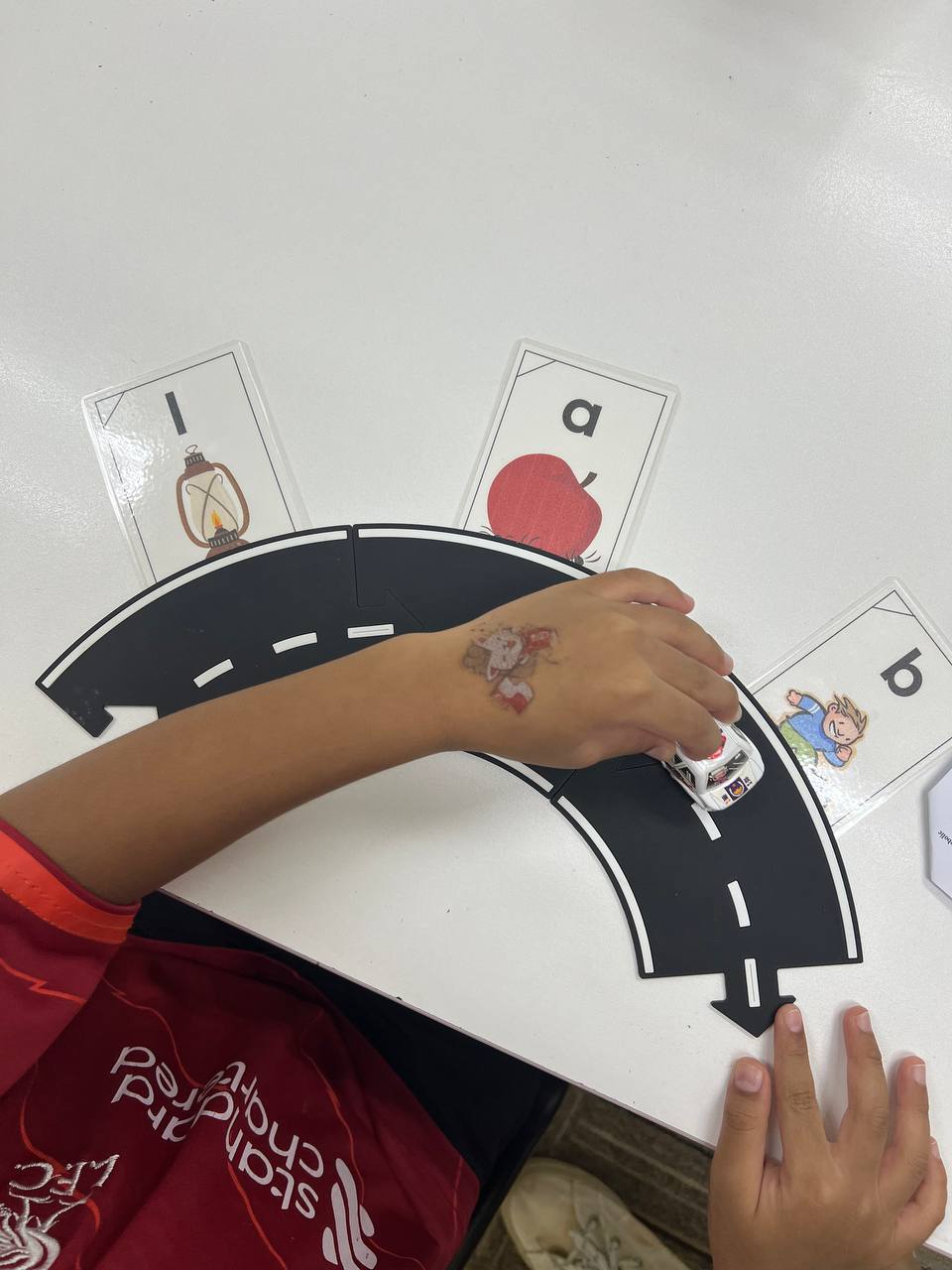
Diving into Challenges & Misconceptions
Denise also shared about her experiences with formal dyslexia assessments, which usually take place when a child turns 6 in K2. Included in the assessment is a form to be filled by classroom teachers.
"A lot of classroom teachers... if the question is, like, 'Is the child trying their best?' Most of them would say 'no', because the child seems to be very restless, not interested in class... Lazy,' Denise remarked. "But it's not that they are not interested! It's that they don't even know what you're talking about; how can they be interested?"
"For me, I have never seen my kid 'not trying their best. They are always doing their best... The 'lazy' part really gets (to) me. I have never seen my kids being lazy."
"The biggest misconception (from) the mainstream teachers is that they always see the kids as being lazy; that's why they cannot get what they are trying to do," Denise elaborated. "But maybe they did not really consider that that's a skill that is difficult for them. They just need a longer time to understand the concept that they are trying to learn."
Working at DAS has also revealed new challenges for Denise, who works alone without co- or assistant teachers. "I feel very lonely... Because I don't have many colleagues. We... don't really work as a team, because we have our own classes. And we don't have a chance to interact with other teachers in the same [preschool] team."
Denise's colleagues are from the Main Literacy Programme (MLP), which is for children who are formally diagnosed and in primary school. "It's very much like a primary school setting. Those [kind of] tables and screens... and they do have hands-on activities, but it's very different from pre-school programme. Or rather, very different from how I deliver. My direct colleagues won't really understand the kind of work that we are doing. And don't really understand how pre-schoolers are like."
"Definitely, my colleagues are very nurturing. It's just the disciplining way... It's just very different. I cannot fault them."
Despite these challenges, I hear the pride and elation in her voice when she shares the individual achievements that each child has worked hard towards. There was a child who, in K2, was still struggling to write his name. After realising it was an issue with fine motor strength, she worked with his parents on providing him with activities to enhance his coordination and dexterity. While his parents were still concerned that he could not write his name with a pencil, she highlighted his learning by showing the progress he has made since they started.
Towards the end of the year, Denise shared that, "he wrote his name with name, not using pencils, using the marker, and so beautifully."
"It actually took about three terms for him to reach that level. But that's success. He knows it's difficult, he knows it's challenging, but he didn't give up. That's a major success for me."
Seeking New Perspectives and Knowledge
Throughout her teaching journey - from MK to SUSS and now to DAS, Denise has always felt the need to prove herself, but that has helped her to push herself to grow even more. "I'm the youngest at DAS, actually. But I'm a driven individual and I want to you that I can carry out my lessons well. And I can actually think out of the box and be very creative in how I delivery my lessons," Denise asserted.
"But there's also a (learning point) where I need to keep seeking knowledge and keep trying to find out different points of view. And that's when I can also grow my own path."
Denise shared that her experience during ECE490 (Teaching Practice) taught her to value different styles of teaching. There was another intern whose teaching style was "worlds apart" from hers. "I'm the very loud, using a lot of movements, using a lot of activities to deliver a lesson. But she is a more quiet girl. Calmer. She prefers one-on-one and she's very soft. But that's also how she gets the attention of the children."
"But that's when I also learnt from her: how can I tap on that kind of skill. That's when I learnt to help my group of children, getting them a bit more quietened down... That helps that lesson a bit more than using tons of activities."
This has pushed Denise to learn more from other. "I always constantly try to find out what the latest games (are), what the other teachers are up to to make the lessons more interesting, more fun. And that is also developing myself."
"It's not just learning the right things. When you go into classrooms, you also should look out for things you should not learn. It's also learning to pick up the bad things, a reminder to myself to not do that."
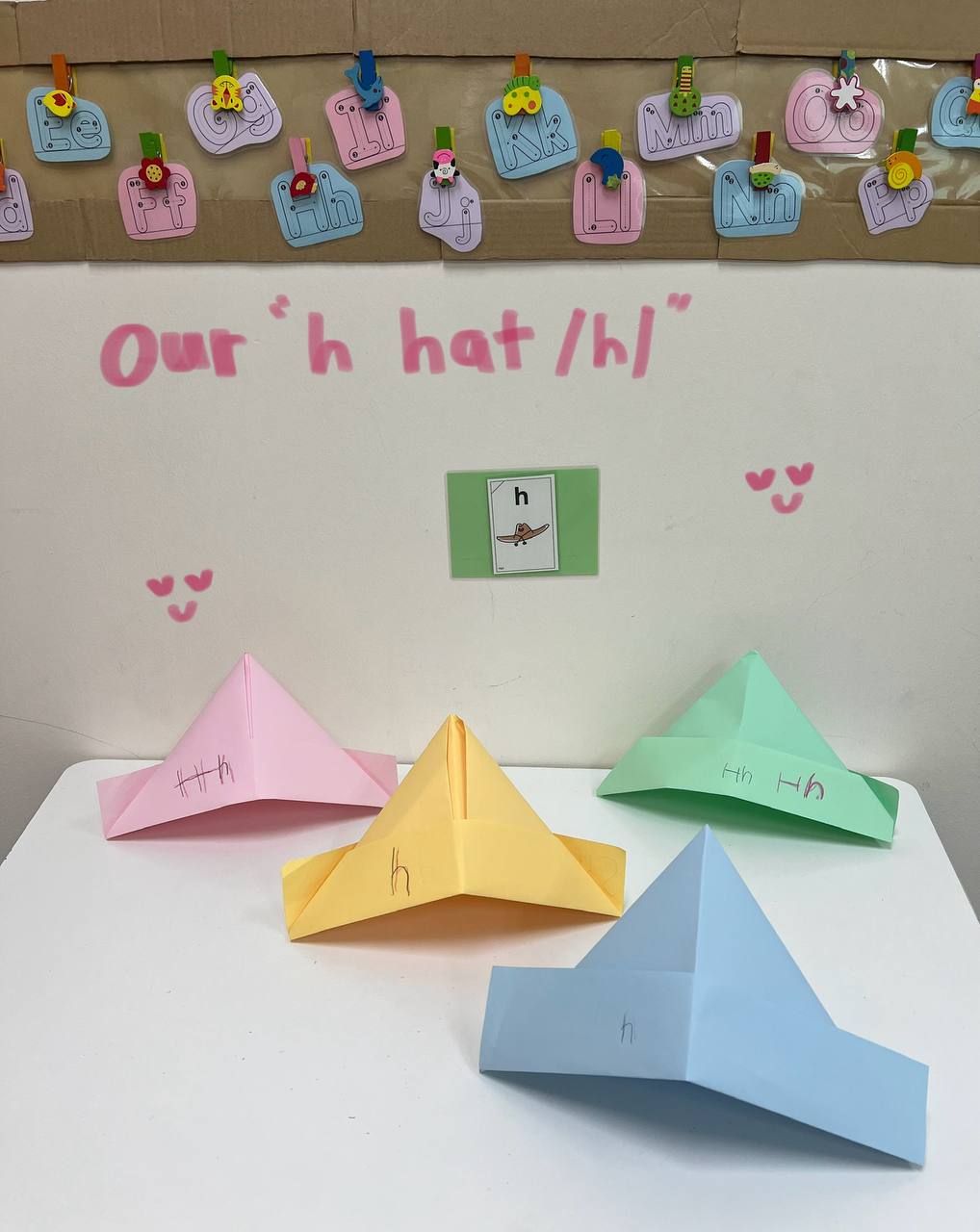
Looking to the Future
Rounding off our conversation, I asked Denise for some advice and encouragement for individuals looking into educational therapy, or even classroom teachers encountering a child with language and literacy needs in the classroom.
"I feel that passion will only take you so far. Having an interest, or just finding out is not good enough, because the kind of challenges that you face - be it the kind of support you will receive, the kind of mental load that you will have... its going to be very heavy," Denise revealed. "The kind of work that we need to prepare prior to the lesson is going to be a lot."
"The children that you will be receiving–it's very important to build a bond with them. Once you build a bond with them, it will be easier to help them," she elaborated. "Knowledge is important. You have to constantly be seeking new knowledge on how you can help your child. Maybe this strategy will work with Child A, but the same strategies will not work for Child B and you need to keep trying and finding out."
Denise, it was delightful hearing you speak about your commitment and dedication to children with dyslexia! Thank you for sharing your story, and we wish you all the best.



